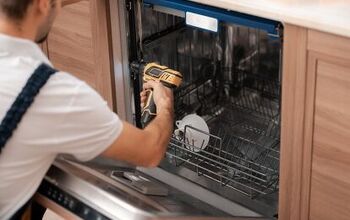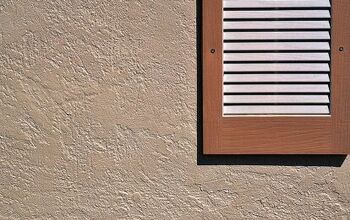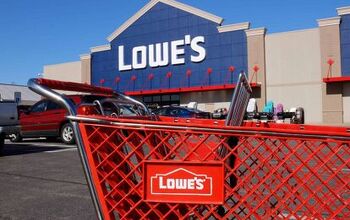Can You Leave A Fridge Outside In The Winter Unplugged?

If you’re buying a new fridge, you may be tempted to leave your old fridge outside in the winter unplugged. However, leaving your appliance outside in the winter while unplugged can incur some damages.
You can leave your fridge outside in the winter unplugged, but it will get damaged if left uncovered. Rain, snow, extreme temperatures, or humidity can impair your fridge. If you want to leave your appliance outside when the temperatures are above freezing, use a waterproof cover. Manufacturers recommend keeping your appliance in places between 50 to 95 degrees Fahrenheit.
Knowing how your fridge works can help you understand how cold temperatures can wreak havoc on it. You can also take steps to protect your appliance from the elements.
Do You Need Appliance Repair Services?
Get free, zero-commitment quotes from pro contractors near you.

How Does a Refrigerator Work?
- You set your fridge to a certain temperature.
- The liquid refrigerant moves through the fridge system and turns into vapor. This vapor cools down the fridge interior and your food.
- The compressor turns the vapor back into a liquid and the process starts again.
Important Parts of a Refrigerator
Thermostat
The thermostat gauges the temperature in and outside of the fridge. It powers up and turns off the compressor as needed. When the ambient temperature is hot, the thermostat alerts the compressor to kickstart the cooling mechanism.
Compressor
This crucial fridge component spearheads the cooling process. It moves the refrigerant throughout the cooling system.
Condenser and Evaporator
The condenser is where the refrigerant cools down and turns into a liquid. The evaporator is what cools down the fridge interior, helping keep your perishables fresh.
Capillary Tube
The condensed refrigerant travels through the capillary tube as it makes its way to the evaporator.
What Atmospheric Temperature Is Acceptable For Refrigerators?
Generally, any temperature below freezing (32 degrees Fahrenheit) can cause damage to your refrigerator. However, most fridges will stop working below 35 degrees Fahrenheit.
Furthermore, most manufacturers recommend keeping fridges in rooms where the temperature is between 50 to 95 degrees Fahrenheit.
When the outside air is cooler than the air inside, your appliance thinks it doesn’t need to cool its contents. In fact, items inside can begin to thaw. This is bad news for food items like meat and dairy.
Fridges are not equipped to heat up the surrounding outdoor air, so their temperature regulation is compromised. Even if your freezer section remains frozen, the fridge section can begin to thaw. The thermostat thinks it’s already reached the optimal temperature due to the outdoor air being so cold.
What Kind of Damage Do Fridges Experience Outdoors?
Your appliance parts can suffer in extremely cold or wet conditions.
Electrical
- Power Cord
- Wires
- Control Board
Mechanical
- Pipes
- Valves
- Compressor
- Thermostat Malfunction
Other
- Rusting
What to Do to Prepare My Garage Freezer For the Winter
There are various ways to winter-proof your garage to keep your fridge and/or freezer safe.
Install a Heating Element Next to the Thermostat
- Space Heater: Place a heater next to your fridge to fool your thermostat into thinking it’s warmer than it actually is outside.
- Heating Coils: Affix a heating coil around the fridge thermostat to ensure that the fridge doesn’t malfunction under winter conditions. Many fridge manufacturers offer brand-specific heating coils. There are standard coils available at home improvement and appliance stores, too.
- Work Lamp: A portable work lamp with a clamp attachment and a gooseneck can be helpful. Position it facing the thermostat. This little bit of heat can warm up the air around your thermostat.
Insulate Your Garage
If you want to cold-proof your garage, you can insulate it with fiberglass panels and drywall. This comprehensive process may take more planning than simply adding a heating element to your garage.
Take care to seal any cracks, gaps, or holes in the wall or the doors. Once your garage is insulated, your appliances are protected from icy drafts and temperatures.
Invest in a Newer Model
Refrigerator-freezer models with two thermostats for the respective sections may be best for your garage. This way, even if one shuts off due to below-freezing temperatures, the other will still be functioning.
These models are also built to accommodate erratic temperatures you may witness year-round.
Disconnect Water Lines
If your garage fridge is connected to a water supply, you might turn this feature off for the winter. You can also insulate the connection to ensure that freezing temperatures don’t cause the water to freeze. This can result in cracked or broken pipes.
Do You Need Appliance Repair Services?
Get free, zero-commitment quotes from pro contractors near you.

Related Questions
Should I unplug my garage refrigerator in the winter?
If your garage is not insulated and you don’t have a heater, yes. Make sure to pull the plug and disconnect any water supplies. If your garage is insulated or is equipped with a heater, no.These guidelines apply to winter climates where temperatures can dip below freezing.
Is it OK to leave a refrigerator unplugged for a month?
Yes. If you’re going on vacation for a month or longer, you can leave your refrigerator without power for however long you’ll be away. Ensure no perishables are inside, and clean the surfaces thoroughly.Unplug it from the wall, especially if it’s connected to a water line so it doesn’t make ice or water. If there’s ice or frost built up, let it thaw out and mop up excess water.Leave the fridge and freezer doors open to prevent odors or mold from forming. Opening doors also promotes airflow. Excess humidity has the potential to ruin electrical components.
Do fridges stop working in cold weather?
In temperatures below freezing, fridges may stop working. The fridge thermostat believes that the interior temperature is cool enough since the outside air is cold. It may then stop cooling your food items.In most cases, if your garage is unheated, your refrigerator or freezer may not work. The exact temperature minimum for fridges varies by company. Still, most fridge companies advise against leaving appliances in rooms that are 50 degrees Fahrenheit or below.

We are a team of passionate homeowners, home improvement pros, and DIY enthusiasts who enjoy sharing home improvement, housekeeping, decorating, and more with other homeowners! Whether you're looking for a step-by-step guide on fixing an appliance or the cost of installing a fence, we've here to help.
More by Upgraded Home Team



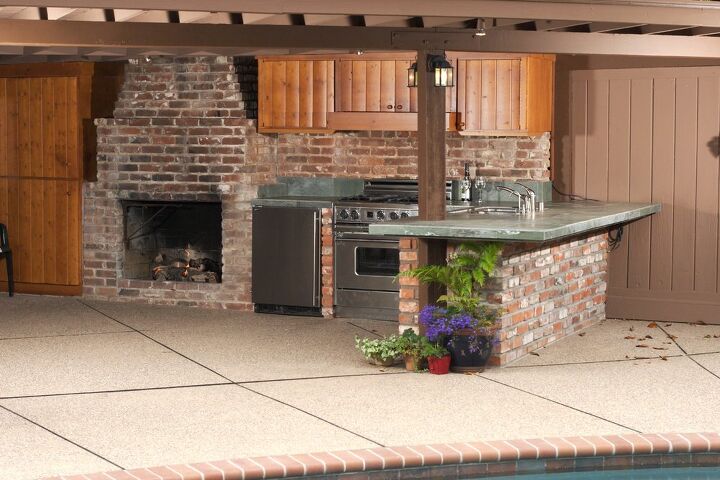






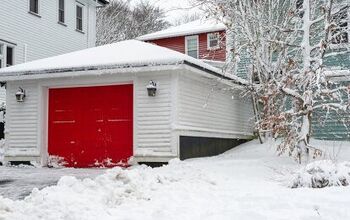
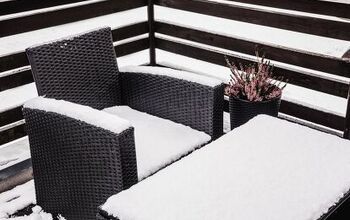

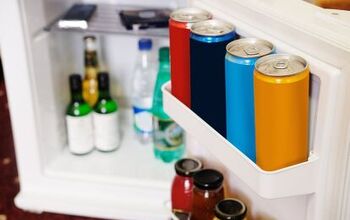
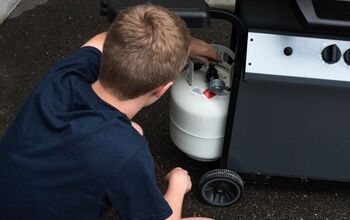
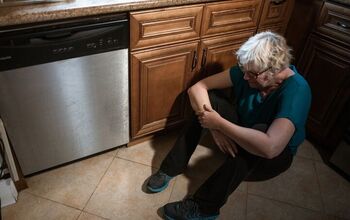
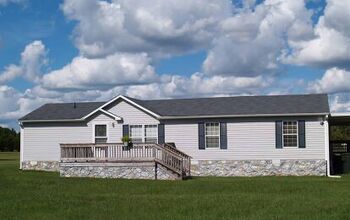
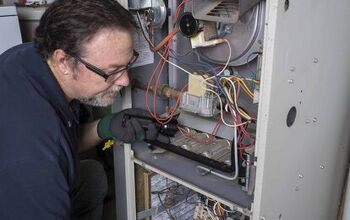
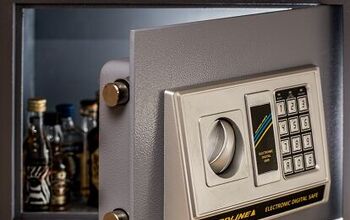


![How To Reset A Whirlpool Cabrio Washer [In 5 Easy Steps!]](https://cdn-fastly.upgradedhome.com/media/2023/07/31/9076531/how-to-reset-a-whirlpool-cabrio-washer-in-5-easy-steps.jpg?size=350x220)
